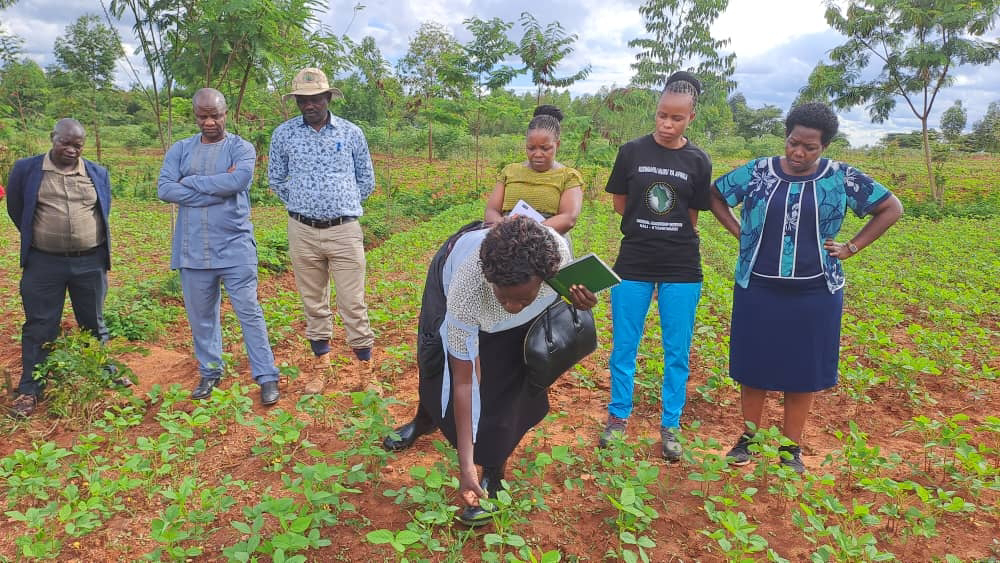Musevenomics Ideology, A MasterCard to Development In Elgon Region
The Concept of Musevenomics is a hybrid of the perceived age since 1980s, this brings a readers inclinations and perceptions on economic persuasion underlying the steady progress of this nation to middle income forecasted at 2040.
The Elgon Region PDM focal persons are being accustomed in a one day training Mbale secondary school on wealth awareness to reflect on growth and subsequent values to enhance household income levels with economic diversification.
Understanding Musevenomics with
an Industrial Lens and Tracking
Growth in Uganda’s Industrial and
Economic Development, in the book titled “Musevenomics”, H.E. Yoweri Kaguta Museveni expresses his desire to cause
“social-economic transformation so that we end the life of the peasantry of our society and
become a middle-class, skilled working class society a modern society based on a fully monetized economy”. The President diagnoses the root causes of slow progress in Uganda’s
socioeconomic and structural transformation, and based on his enormous experience, education
background and insights obtained from reading widely, the President prescribes solutions that he
envisions will lead to an Integrated, Independent and Self-Sustaining National Economy.
The Seven philosophical pillars include Rationality, Reasonability, Adaptability, Realism on the grassroot while the final three comprises Logic, Innovation and creativity. In response, Uganda's journey shows how locally adapted economic policies can create sustainable growth and stability. The pillars of Musevenomics offer practical wisdom for any developing nation.
Wanakina George Davidson, the Mbale district production and marketing officer while giving a brief background government programs like PDM, emyooga and others, pointed out the impact after a long dynamic progress sighting steady livelihood at household level and engaging the households on profitability which are indicators of sustainable development across the country.
The primary target for government interventions should be the
ordinary people, especially homesteads that are still “sleeping” in subsistence activities. In his submission, the issue of adaptability, Realism, potential and ability as a way of managing the enterprises well
There must be a value for the money disbursed at household level citing the ones below the 39% being vulnerable.
Risk management is one of the plans to make the beneficiaries be aware and manage those bridges to success.
H.E. the President notes that “subsistent homesteads need to be brought into the culture of creating wealth and jobs”. This view has greatly informed many government programmes that target households as the primary beneficiaries. These include; National Agricultural Advisory Services (NAADS) programme, Prosperity for All (PFA), Operation Wealth Creation (OWC), Emyooga programme as well as the Parish Development Model.
There was economic revival from colonial ruins which had collapsed Uganda's economy with civil conflict and management. Leaving only coffee exports at 95% and 26 million in reserves.
Mafabi Muhammad, the district chairperson in his deliberations, cited the roles as an entity to unlock the growth from the "Wanachi" but with the assistance from the government.
Being practical requires time though there are hindrances towards progress. The chairperson reflected the support from the NRM government with grants which is the power house towards sustainability.
The grand children "Bazukulu" need to enjoy the good governance with better economic transformation which is powered by Musevenomics Ideology by the seating president.
Wanda Richard, the bungokho central member of parliament, this is a historic gathering though with many hampers. Our own ideological journey by H.E. President Museveni. Ugandans should start believing and taking heights on the economy which is self sustaining.
Wanda reminded the participants to embrace the ideology of Musevenomics to transform people out there to carry forward the nation.
Nakawala Naume, the DRDC of Mbale district while addressing the gathering, appreciated the organisers and Mbale district for feasibility on call, the DRDC pointed out institutions as the efforts of the government to the region.
"Great thanks to the Mbale team for the energies that have not burnt out even when their challenges are staked".
Government programs are evident to good governance as we pledge to support our people for a better Uganda.
During Musevenomics Launch @BSS











Comments
Post a Comment